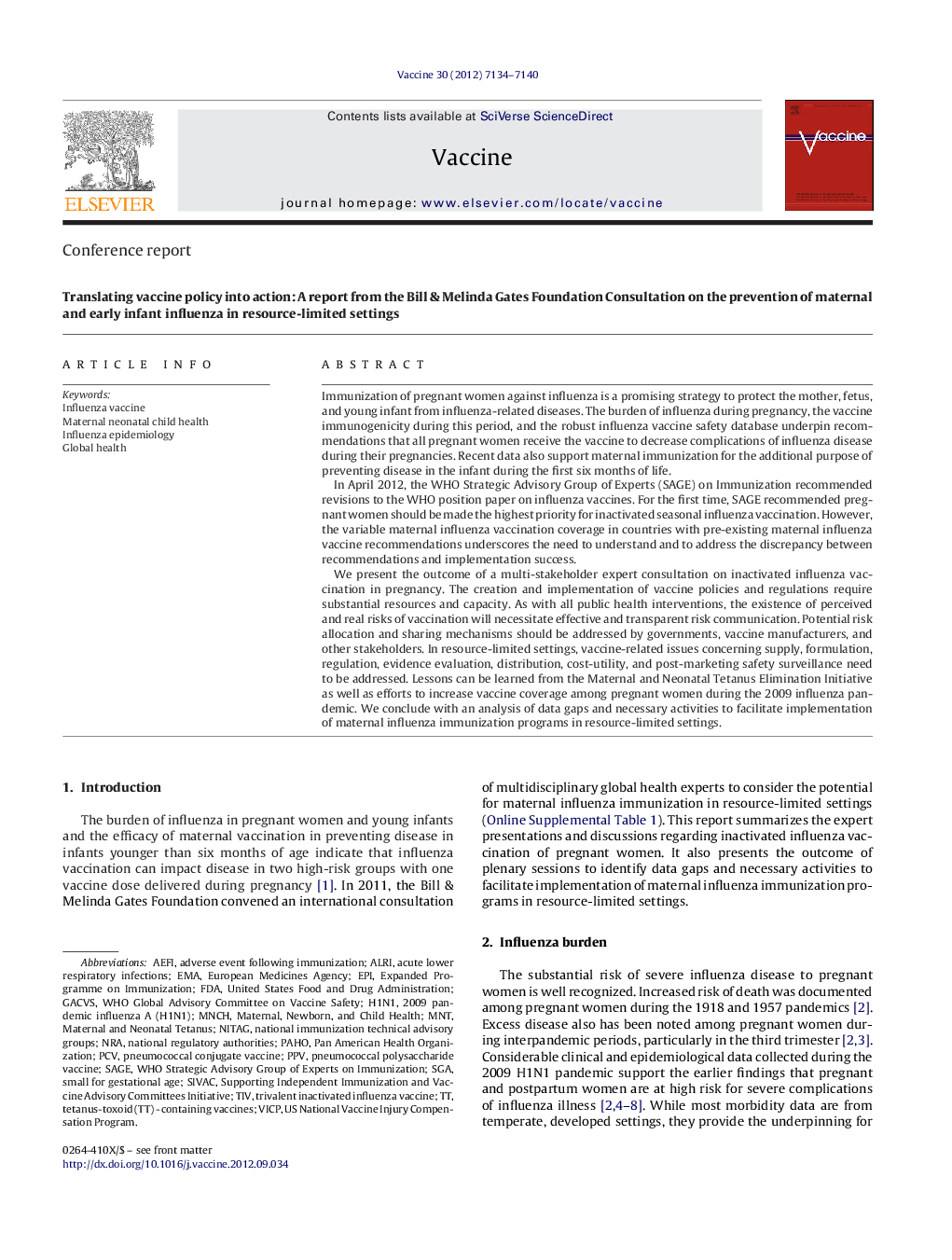| Article ID | Journal | Published Year | Pages | File Type |
|---|---|---|---|---|
| 10967296 | Vaccine | 2012 | 7 Pages |
Abstract
We present the outcome of a multi-stakeholder expert consultation on inactivated influenza vaccination in pregnancy. The creation and implementation of vaccine policies and regulations require substantial resources and capacity. As with all public health interventions, the existence of perceived and real risks of vaccination will necessitate effective and transparent risk communication. Potential risk allocation and sharing mechanisms should be addressed by governments, vaccine manufacturers, and other stakeholders. In resource-limited settings, vaccine-related issues concerning supply, formulation, regulation, evidence evaluation, distribution, cost-utility, and post-marketing safety surveillance need to be addressed. Lessons can be learned from the Maternal and Neonatal Tetanus Elimination Initiative as well as efforts to increase vaccine coverage among pregnant women during the 2009 influenza pandemic. We conclude with an analysis of data gaps and necessary activities to facilitate implementation of maternal influenza immunization programs in resource-limited settings.
Keywords
FDANRAAEFIVICPMNTPAHONITAGMaternal, newborn, and child healthTIVEPIALRISIVACSGAPPVEMAH1N1European Medicines agencyUnited States Food and Drug AdministrationInfluenza epidemiologyExpanded Programme on ImmunizationGlobal healthSmall for gestational ageSAGEAdverse event following immunizationPan American Health OrganizationAcute lower respiratory infectionsinfluenza vaccineTrivalent inactivated influenza vaccinePneumococcal conjugate vaccinePneumococcal polysaccharide vaccinePCV
Related Topics
Life Sciences
Immunology and Microbiology
Immunology
Authors
Justin R. Ortiz, Kathleen M. Neuzil, Vincent I. Ahonkhai, Bruce G. Gellin, David M. Salisbury, Jennifer S. Read, Richard A. Adegbola, Jon S. Abramson,
